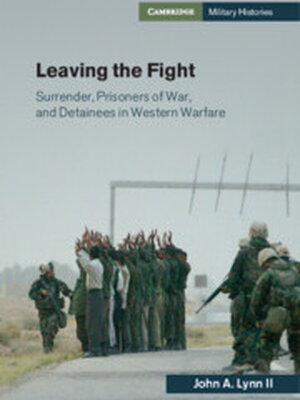
John A. Lynn II
‘John Lynn has again applied his admirable talents to an often neglected aspect of warfare, this time looking at the evolution of policies and practices dealing with prisoners and detainees. I share his admiration for the example of Major General Douglas Stone in Iraq, and also agree very much that the challenges of counterinsurgency and counterterrorism may indeed re-emerge despite contrary official expectations. This detailed analysis should be read by all future policy makers faced with the complexities of modern conflict and its impacts.’ Conrad Crane, author of "Cassandra in Oz: Counterinsurgency and Future War"
‘Lucidly written, deeply researched, and brilliantly argued, Leaving the Fight will be the standard work on its subject for a long time to come.’ Mark Grimsley, author of "The Hard Hand of War: Union Military Policy Toward Southern Civilians, 1861–1865"
‘John Lynn creates yet another paradigm for understanding war, reminding us that it is more than combat; it is also very much what comes after. With flair and countless vivid examples, Lynn assesses changes in the transition from raised weapons to raised hands, with telling consequences for peace.’ Wayne E. Lee, author of "Waging War: Culture, Conflict, and Innovation in World History"
‘An absorbing and thought-provoking examination of a long-neglected aspect of warfare, John Lynn's Leaving the Fight offers a cogent review of the forms of surrender and the factors that affected how soldiers and civilians were treated as prisoners and detainees. Essential for every reader of military history.’ Reina Pennington, author of "Wings, Women and War"
‘John Lynn provides an empirically rich, analytically and theoretically rigorous survey of the surrender of states and military units since the eleventh century. Focusing on the western experience, with particular reference to the United States, he charts the shift from prisoner exchanges to detention and captivity, coupled with the unsteady yet undeniable spread of more humane and inclusive codes of behavior. His concluding admonition of the importance of foregoing temporary advantages that breach accepted norms is both timely and salutary.’ Peter Wilson, author of "Iron and Blood: A Military History of the German-speaking Peoples since 1500"